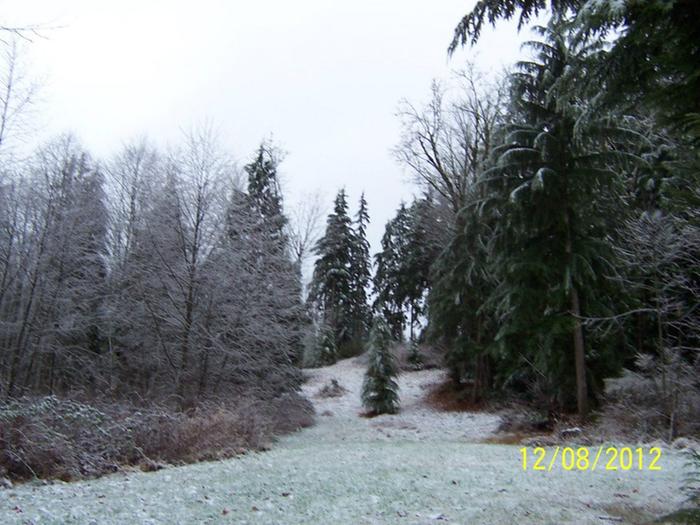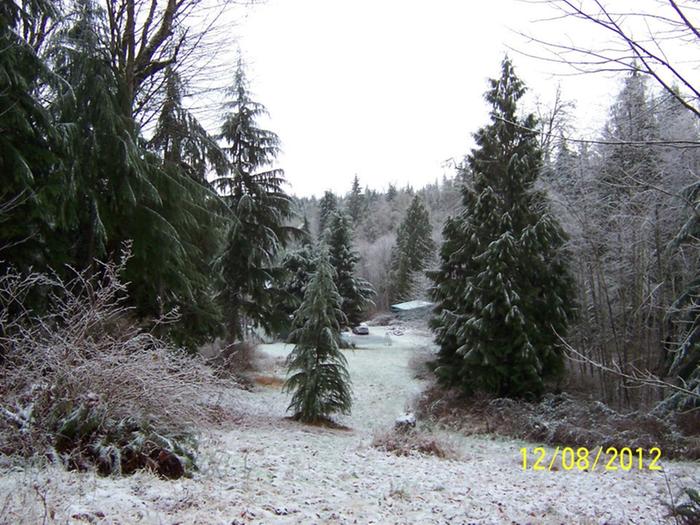














"You must be the change you want to see in the world." "First they ignore you, then they laugh at you, then they fight you, then you win." --Mahatma Gandhi
"Preach the Gospel always, and if necessary, use words." --Francis of Assisi.
"Family farms work when the whole family works the farm." -- Adam Klaus









http://www.cloud9farms.com/ - Southern Colorado - Zone 5 (-19*f) - 5300ft elevation - 12in rainfall plus irrigation rights
Dairy cows, "hair" sheep, Kune Kune pigs, chickens, guineas and turkeys
 1
1




Nicole Alderman wrote:
Do you know how large of a flock I'd need to "pay for" the feed and care of a dog, as well as the fencing. It seems like sheep might not be cost-effective on the small scale...
"You must be the change you want to see in the world." "First they ignore you, then they laugh at you, then they fight you, then you win." --Mahatma Gandhi
"Preach the Gospel always, and if necessary, use words." --Francis of Assisi.
"Family farms work when the whole family works the farm." -- Adam Klaus
 2
2




Idle dreamer




Zone 5/6
Annual rainfall: 40 inches / 1016 mm
Kansas City area discussion going on here: https://www.facebook.com/groups/1707573296152799/




Tyler Ludens wrote:It's difficult to raise sheep for wool - buyers of small amounts of wool want very high quality, clean wool, which means you have to raise the right breeds of sheep, keep their paddocks clear of any trees, brambles and stickers, and (usually) have them wear protective jackets. Shearing sheep is a pain; you have to do it right or you compromise the quality of the wool. Washing wool is time-consuming, again you have to do it right or it is ruined.
I got a few sheep thinking I would like to work with the wool, and they have been kind of a pain in the butt.

http://www.cloud9farms.com/ - Southern Colorado - Zone 5 (-19*f) - 5300ft elevation - 12in rainfall plus irrigation rights
Dairy cows, "hair" sheep, Kune Kune pigs, chickens, guineas and turkeys
 2
2




'Theoretically this level of creeping Orwellian dynamics should ramp up our awareness, but what happens instead is that each alert becomes less and less effective because we're incredibly stupid.' - Jerry Holkins
 2
2




Idle dreamer








'Theoretically this level of creeping Orwellian dynamics should ramp up our awareness, but what happens instead is that each alert becomes less and less effective because we're incredibly stupid.' - Jerry Holkins
 2
2




Nicole Alderman wrote: they're dumber than goats
Idle dreamer
 1
1




"You must be the change you want to see in the world." "First they ignore you, then they laugh at you, then they fight you, then you win." --Mahatma Gandhi
"Preach the Gospel always, and if necessary, use words." --Francis of Assisi.
"Family farms work when the whole family works the farm." -- Adam Klaus




Idle dreamer
 1
1




 1
1




 2
2








Kyrt Ryder wrote:
By 'our' I am of course referring to western PNW winters [I'm pretty sure Nicole is on the west side of the cascades as I am?]

Mike Turner wrote: Hair sheep are much hardier than wool sheep since they are closer to their primitive wild sheep ancestors, aren't continually using calories growing wool and don't have the problems (fly strike, casting, bramble entanglement, etc,) associated with carrying thick, bulky coats of wools.

 1
1




Nicole Alderman wrote:If hair sheep are hardier, does that refer to their ability to weather the elements (living without a shelter like Kyrt mentioned), or just to their disease resistance, etc?
That was primarily in reference to bottle rams [which have zero fear of people.] I've been through two breeding seasons with my sheep and the worst a ram has ever done is gently butt the back of my leg to try to get me to bring their hay faster [breeding season for Icelandics happens late fall/early winter and my pastures are a work in progress.]All this information about males ramming is really good to know, too. I guess they're called rams for a reason!

 1
1








 2
2




 2
2




Hasn't been a problem for my Icelandics, nor the Jacob sheep of an acquaintance. Where I live from when the rains start in September until they slow down in May we usually get rain at least twice a week, if not far more often than that.Mike Turner wrote:Look up "fleece rot". If a sheep's wool remains continuously wet for a week or more, its skin can develop lesions and bacterial infections. This can be a problem in cool, rainy climates where it rains often enough that the fleece never gets a chance to totally dry out.
 3
3




Then your salvation will come like the dawn,
and your wounds will quickly heal.
Your godliness will lead you forward,
and the glory of the Lord will protect you from behind- Isaiah 58:8

 4
4




Hans Albert Quistorff, LMT projects on permies Hans Massage Qberry Farm magnet therapy gmail hquistorff
 2
2




Our Homesteading YouTube Channel: The Grass-fed Homestead
 10
10








Our Homesteading YouTube Channel: The Grass-fed Homestead
 3
3








 1
1




I live in Bizzaro World.
 1
1




Alder Burns wrote:The ram lamb eventually did get aggressive once he was mature enough to breed. Finally I penned him separately and feed him hay, silage, weeds, and coppice. But before I was able to set up a pen I found by trial and error that a squirt bottle filled with urine, beefed up with a dash of ammonia, would make him keep his distance for hours at a time. The nasty sludge that drains from the bottom of my black soldier fly bin, flung in his face, would work even better....
 3
3








Our Homesteading YouTube Channel: The Grass-fed Homestead






 2
2




Maureen Atsali
Wrong Way Farm - Kenya
 3
3




Andrew Bennett wrote:Hey all, new to permies.com so I thought I hunt around for the topics I know best. I've been herding goats/sheep for six years in a mountain town in BC using portable shelters and electric netting. I use land I lease from landowners for free in exchange for the tax break I get them. That means everything I do has to be lightweight and efficient to move. We also do veg, chicken, bees, etc. in what I call "periurban" farming, edge of town. Check us out, rad little place, Rossland BC.
Fencing: Permanet 10-48-6 single spike from Premier1supplies.com. I have a stash of 50', 100', and 150' fences. A bit of an expense up front, but my first fences from 6 years ago are still going strong. I can throw up 600' of fenceline in less than 30 minutes in a clear pasture, 1 to 1.5 hrs in thick, steep bush. This year I treated myself to a brush cutter, but for years I just smashed and crashed. It takes a week of working with someone to pass on the many helpful tips and tricks that I learned the hard way, but stick with the netting, it's worth it in the end.
Predators: We are full of bears and coyotes here. Rarely a day goes by we don't see a bear, and dung around the fences always. Every other night coyotes are yipping and yowling literally outside our window and around our goats. A cougar killed a deer not 100' from where I type. Our town is "on the edge." And in all that time, I've never had a loss to predators (knocking wood). In the spring I make sure the fence is cracking at least 5000 volts. The wildlife is soon trained (bear dung tells the story) and so later in the season I don't mind if the fence drops even as low as 2000 volts, but I aim to stay above 3. Buy a good voltmeter and use it all the time.
Shelters: I make mine 12' long by 4' wide and can easily move them by myself, through thick bush. Here are instructions for an 8' shelter, all you need for 4 animals: Get two 3x8' sheets of metal roof. Access (metal roofing) screws attach 2x2 purlins into every other rib on the metal roofing (assuming there are five ribs on each piece). I use my hoop bender (Johnny's Selected Seeds) to make 4' diameter hoops with 3/4" steel conduit (EMT), and then set 4 hoops set in 1" holes drilled into the edge of 2x4 “skids”. I lay the roof on the hoops and use steel straps to secure the purlins to the hoops. I put the roof on assymetrically so there is a low side and a high side...the animals dig it.
Addendum: If you're doing goat kids, I also add a funny electric-fence contraption on top to keep the kids from playing on the roof. When they get bigger, they'll punch a hole through the roof and lacerate their shin, requiring super glue and TLC to repair. Ask me how I know...
Water: Big ol' cheap plastic tub with a Little Giant float valve. I run water for 100's of feet from wherever the source is using 3/4" poly pipes with quick connect fittings at either end. Unroll what I need and plug into the tub.
Parasite and Pasture Strategy: If it's a big pile of bush, just fence the perimeter and let them have it for a while. So long as they're not feeding near the ground and it's not soggy, don't worry too much. Normally for pasture, however, I give them a fresh chunk of graze every day, and here's the big one... completely move them to new ground after four days to avoid closing the parasite loop. Pasture loves the intense hit of grazing for a short time, and animals love it too. So stoked when they move into new green every day.
Hope that helps... I'll see if I can upload a couple photos to give the idea...

|
Stay foolish to stay sane --Maxime Lagacé ... foolish tiny ad:
Learn Permaculture through a little hard work
https://wheaton-labs.com/bootcamp
|





